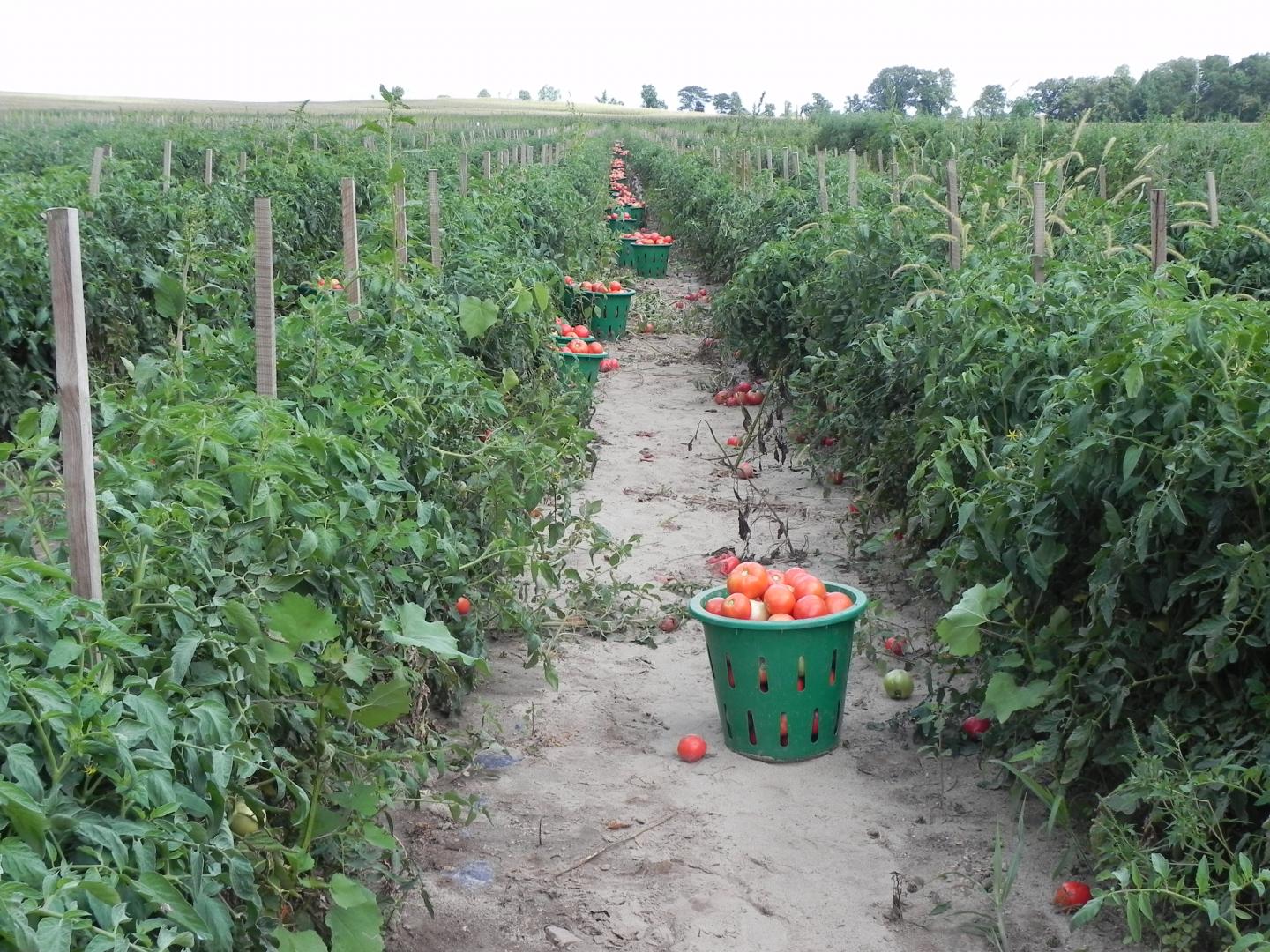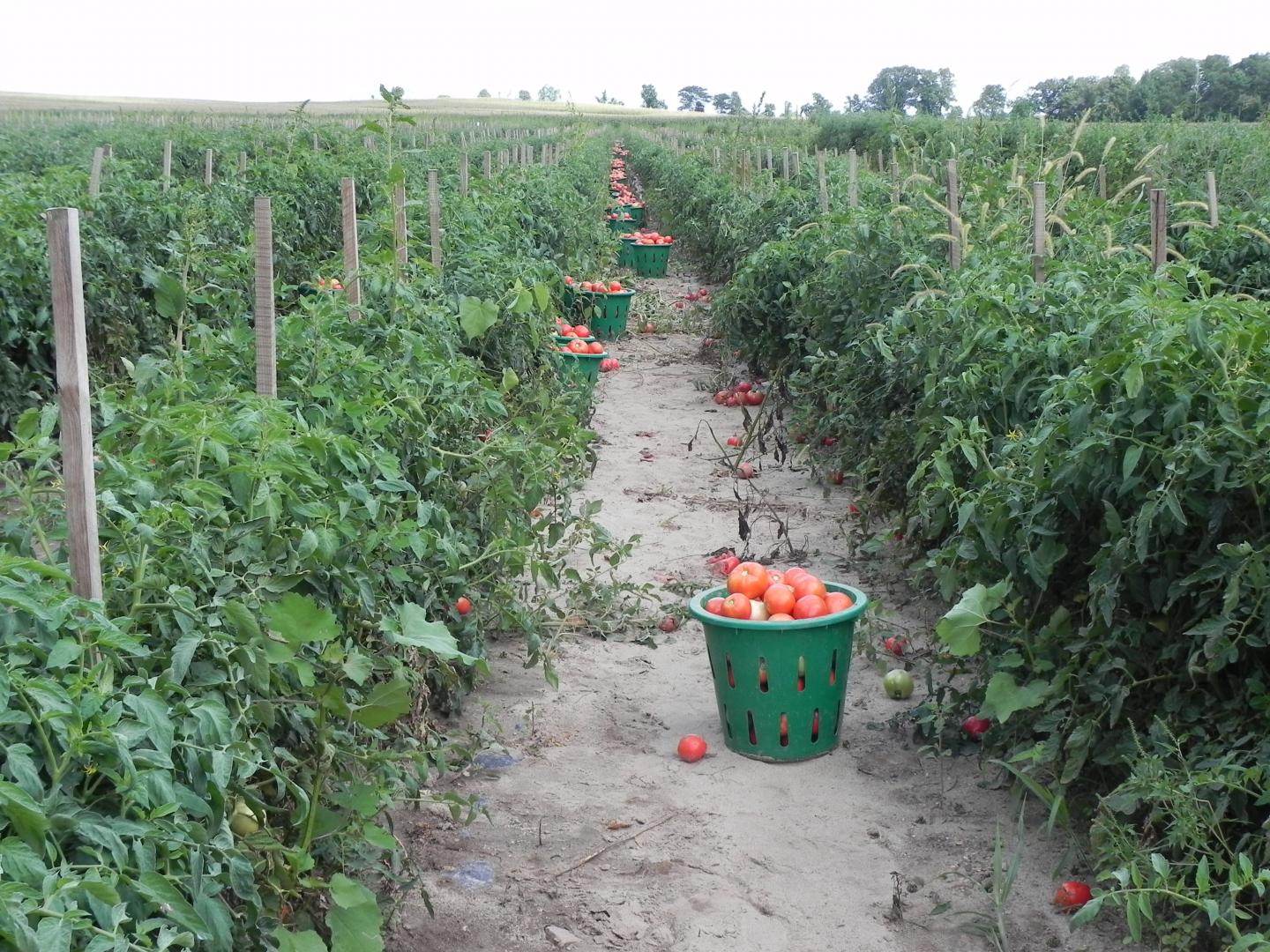
WEST LAFAYETTE, IN – Organic tomato production is growing rapidly in Midwestern states in the US, as evidenced by a USDA study that found certified organic tomato production increased more than 277% in the region from 2007-2011. The authors of a report in the September 2015 issue of HortScience say that to keep up with high consumer demand, organic tomato growers need to identify cultivars that are well-adapted to local conditions, are viable under organic management practices, and have the quality characteristics that consumers want.
Purdue University's Lori Hoagland is the corresponding author of the report on an organic tomato participatory breeding program. Hoagland explained that participatory breeding is a powerful and cost-effective way to engage growers in the development of new cultivars optimally adapted to organic farming systems. Hoagland and scientists John Navazio, Jared Zystro, Ian Kaplan, Jose Gomez Vargas, and Kevin Gibson focused their research on the first two phases of a participatory breeding program model. For the first phase, the team collaborated with local growers to identify key plant traits needed to optimize organic tomato production in the US Midwest using an online survey. In phase two, they initiated field trials to select suitable tomato cultivars and hybrids to test with growers.
Results of the grower survey showed that both organic and conventional growers ranked flavor as their top breeding priority, but the groups differed in the importance of other fruit quality characteristics. While conventional growers were more concerned with characteristics related to appearance (such as crack resistance, color, and shape) than the organic growers, the organic growers were more concerned with nutritional quality. Disease resistance ranked as one of the top breeding priorities among both grower groups. However, conventional growers were more likely to rate disease resistance as a priority than organic growers. "This was surprising given that organic growers have fewer options to control diseases once outbreaks occur," Hoagland noted.
For the preliminary germplasm field trials, the scientists evaluated a diverse set of existing cultivars and F1 hybrids that were expected to perform well in organic production systems, along with experimental breeding populations that were developed specifically for organic varietal development efforts. "We identified existing cultivars and F1 hybrids with potential to meet the immediate needs of Midwest organic tomato growers, and segregated breeding populations for further selection to be conducted on working organic farms," Hoagland said. 'Mountain Magic' and 'Arkansas Traveler' cultivars were recommended as particularly good performers.
The authors added that further selection on working organic farms will help to identify additional traits that optimize productivity, and ensure that desirable traits are expressed under the wide range of soil and fertility management practices used on organic farms. "New cultivars developed using this approach will also have utility in conventional systems, as they would be less dependent on external inputs and thus make all tomato production systems more sustainable," they said.
###
The complete study and abstract are available on the ASHS HortScience electronic journal web site:
http://hortsci.ashspublications.org/content/50/9/1301.abstract
Founded in 1903, the American Society for Horticultural Science (ASHS) is the largest organization dedicated to advancing all facets of horticultural research, education, and application. More information at ashs.org





